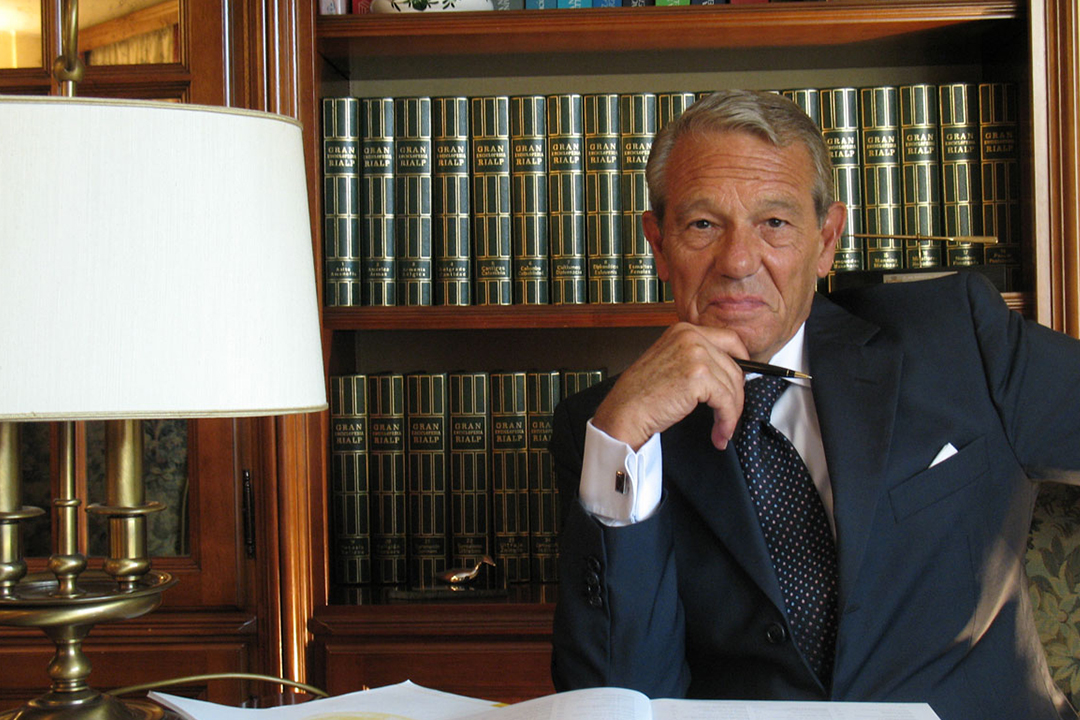“I don’t yet know what benevolence is either. When we began to theoretically study the reasons why people donate, both in Italy and abroad, we encountered this concept of benevolence, and it seemed much richer than other synonyms that explain the reasons for giving. So, we started studying its meaning, and perhaps one day we will publish a book encompassing the entire philosophy of benevolence.”
“What is benevolence?” I borrow from the philosopher Leibniz the definition he gives, which, as a starting point, is valid. He says: delectatio in felicitate alterius, and we can translate it as: enjoying the happiness of another; a beautiful concept. But I wonder, is this possible? To enjoy the happiness of another? Don’t we all agree that happiness is the result of having received something, not of having given something? Is this delectatio in felicitate alterius possible then?
It is specific to human beings; no other entity in the physical cosmos is capable of this. Animals cannot be benevolent, not even those we consider intelligent or generous: to clarify, I have been an animal lover since I was a child, but benevolence is specific to human nature.
And why is this? For one, like all virtues specific to human beings, they can grow, diminish, or disappear completely. When benevolence completely disappears in a human being, we call this with one word: selfishness. There is no other term.
“Why can’t animals have benevolence?” Because they can never move beyond the realm of instincts. Animals always live in the present, and what happens in those animals that seem to act with generosity and self-sacrifice towards others? They simply remain within their instinctive realm, receiving gratification, a sort of “I feel good.”
An animal does not have a biography, whereas a human being does and can direct it. This is why an animal can never assume a moral duty. Its nature does not allow it.
Benevolence distances the human being from the self-referentiality of their own instincts, distancing them from this world that can become relatively closed. Being able to love someone for their own sake, not for the satisfaction that he or she gives me, but loving someone for their own sake, is specific to human beings and is what supports benevolence. And it is precisely thanks to benevolence that I can move away from hostility and even indifference towards another being.
Benevolence does not allow me to be indifferent to someone else or to others. Naturally, I feel fully engaged with the concept of benevolence when I am ready to give (giving is always giving oneself); the person who gives—whether much or little—is giving themselves. I know what it means to feel responsible for others when I am ready to give what I have and what I am, especially what I am.
Benevolence is always voluntary; it is never imposed for reasons other than the perception of the other as a human being. Here, we could make a very extensive digression on what it means to discover the human person in oneself or in another.
“Why do I call a person a ‘person’?” I am asking about the content of that evidence; this underlies many things. The most important is love: love discovers in the other, the person that the other is.
For this reason, at the Campus Bio-Medico University, we have the motto “the person at the center,” which is not original; if we look at other universities or American hospitals, the concept of “the person at the center” is very common. So why was it chosen? The originality does not lie in “the person at the center” but in “the person, conceived as a person, at the center,” not a person as an object or entity. This means that “it starts” not with the student or patient, but with the primary care physician, with the person at the reception, and then with the student, the patient…
Benevolence is not even required by justice. Justice is evidently indispensable in relationships with others, but it, alone, without benevolence, remains incomplete, unrealized, and often sterile and even unjust.
The Romans discovered this and left us with the motto: Summum ius, summa iniuria (extreme justice, extreme injustice); if I build a society based solely on relationships of justice, meaning a set of duties and rights, it ends up being tremendously unjust. What is missing is compassion, mercy, and benevolence, without which summum ius, summa iniuria, without a doubt.
“When I give of myself, what am I pursuing?” I am pursuing the contribution to the growth of the person in their humanity and human dignity. I am not giving for the fight against cancer or for research on… I am giving for the purpose of the human person. If this purpose is not seen, something is still missing; it is not yet benevolence. And this is precisely delectatio in felicitate alterius, that is, rejoicing in the happiness of others, happiness that I have been able to help create in others.
The donor, naturally, is invisible in this process, and the act of giving comes from compassion, sharing, and participation in the lives of others.
To the final question I now pose: “What benefit is there for me when I give of myself and give to others?” One could quickly respond: “With no benefit except one: the self-actualization of myself as a person”; that potentiality—which we saw earlier—that is specific only to the human person.
Here, other considerations of a religious nature or otherwise might come into play, but I deliberately want to keep, for now, the sharing of a few ideas on a purely human level; this explains the apparent paradox that every act of benevolence is above all a gift, but a gift for the giver. If with this relation I am self-actualizing all the potentialities within my nature, every time I give of myself, the gift is for me more than for the other. It is my responsibility to myself that leads me to all the conclusions of benevolence.
Those who possess resources, resources of the earth, know that these resources will be much more valuable if they result in an act of giving—precisely an act of benevolence—which is not wasteful but merciful, meaning full of understanding and closeness to the being of others; the skill lies in making it widespread. So, to the question that Paolo Arullani posed: “Can Benevolence change the world?” I would answer: “Yes, benevolence can change the world. In fact, the world changes in the way benevolence is exercised.”
Everything I have said is provisional because these are ideas we are trying to explore in greater depth; let’s see if one day, the Foundation will be able to complete that book.



